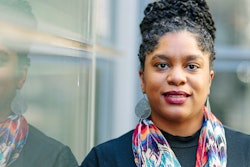Dr. Lesley Shawler
Title: Assistant Professor, School of Psychological and Behavioral Sciences; Faculty Supervisor, Center for Autism Spectrum Disorders, Southern Illinois University
Age: 38
Education: B.A., psychology, California State University, Sacramento; M.A., psychology, California State University, Sacramento; Ph.D., applied behavior analysis, Institute of Applied Behavioral Sciences, Endicott College; and postdoctoral fellow, Kennedy Krieger Institute and Johns Hopkins University School of Medicine
Career mentors: Dr. Caio Miguel, California State University, Sacramento, and Dr. Michael F. Dorsey, applied behavior analyst
Words of wisdom/advice for new faculty members: “A failure is not always a mistake, it may simply be the best one can do under the circumstances. The real mistake is to stop trying.”
Since arriving at Southern Illinois University (SIU) as a tenure-track faculty member in 2021, Dr. Lesley Shawler has developed programs and courses that have impressed her colleagues and community. One administrator, Dr. Tammy Kochel, described Shawler as “an innovator and a scholar” working both within the university and in the surrounding community to effect positive change.
“Soon after arriving on campus, she began to offer clinical training and administrative leadership to our campus’ Center for Autism Spectrum Disorders,” wrote Kochel, associate dean of research, diversity, and personnel, in nominating Shawler to become a 2023 Emerging Scholar. “She became the principal investigator on a service grant which funds the center.”
Kochel said Shawler’s efforts have led to improved financial management of the program. “As a result of her first year of work and ability to build a team of interdisciplinary colleagues, she was able to advocate for the center to receive an increase in funding from $185,100 to over $362,000,” said Kochel, noting that the funding has enabled the center “to provide much-needed free services for low-income families with children with autism. Lesley’s vision and actions have resulted in a top-tier program capable of service and research.”
Shawler said she knew in high school what her general area of research would be. “I knew that I wanted to do something with psychology when I went to college, but I wasn’t sure what that would look like, and I also decided at some point that I wanted to work with children,” she recalled. “I had learned about autism in textbooks in college, but to my knowledge I had never met a person with autism.”
That changed with an internship opportunity. In the second year of her master’s program at Cal State Sacramento, she was accepted into a summer internship in Massachusetts at the New England Center for Children. “I was able to do both practice and research, which was exciting for me, and I worked in a day program with adolescents a couple of days a week, and on the other days I did research.” She called it “definitely a unique experience that allowed me to meet well-known behavior analysts.”
Shawler considered another highlight in her academic journey her post-doctorate fellowships at Kennedy Krieger Institute and Johns Hopkins University in 2020 and 2021.
Her work with the SIU Center for Autism for which Kochel cited her leadership “is really great in the sense that all of the services we provide to our families are free, in a rural low economic and under resourced area,” said Shawler. She said behavior analysis graduate and undergraduate students as well as speech pathology students are involved in providing telehealth screening services, supervised by board certified professionals.
Shawler has co-authored 18 peer-reviewed publications on topics related to behavior analysis and behavioral interventions and has several manuscripts in preparation or under review. She was recently invited to be a guest editor in a special issue of The Analysis of Verbal Behavior, a leading journal in her area of research.
For future projects, Shawler assesses families’ long-term needs. “We’d like to offer behavior services that would hopefully, for some families, minimize the likelihood that their child would have to end up in a residential center when they get older,” she said.
Shawler said years of data have shown that good procedures exist that can decrease challenging behavior and increase functional communication for individuals with autism spectrum disorders. “But we have less convincing data at this time that these procedures can work outside a controlled clinic or laboratory setting. So, I want to focus on what are the best ways that we can take what we’re doing in a clinic or a controlled setting, move it to a home or a school or community setting, and make sure ... they are responding well in other settings where it is actually most relevant for them. We want them to be successful at home, at school, in the community, or at grandma’s house.”















